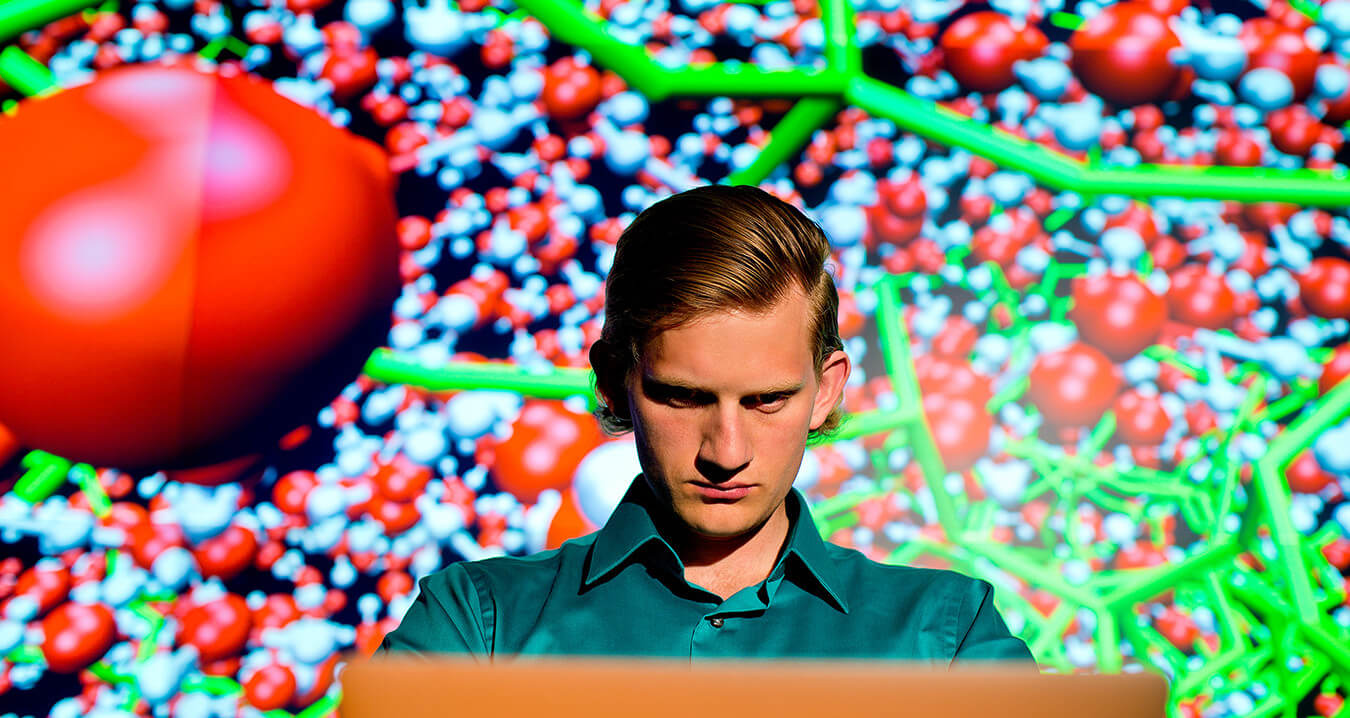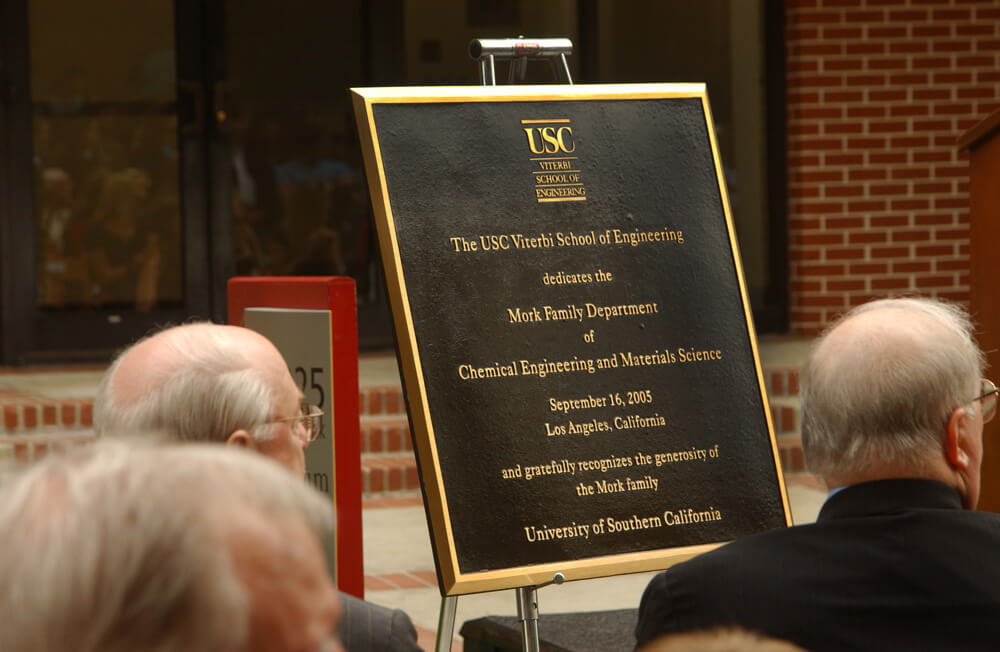Happy Birthday Mork
This year, USC commemorates the 10th anniversary of the Mork family’s transformative $15 million naming gift to the USC Viterbi School of Engineering. The donation brought together the departments of chemical engineering, materials science and petroleum engineering under the name of the Mork Family Department of Chemical Engineering and Materials Science.
This gift and the synergies it created have allowed all three disciplines to strengthen their research and teaching in fields of vital importance to society, while enabling faculty and students to collaborate across them.
“The Mork Family Department is about connections, ” Chair Richard Roberts said. “I think what makes us special is the interest of the faculty here to look for key points of contact between their research and the other programs in the department.”
Collaboration is fairly common across the fields of petroleum and chemical engineering, often linked in the practical world. The relationship between the production of oil by petroleum engineers and the processing of that material by chemical engineers has defined both industries for decades.
At USC, the departments of petroleum engineering and chemical engineering have officially worked together since 1991. USC Viterbi alumnus and energy entrepreneur John Mork, chief executive officer of the Denver-based Energy Corporation of America, brought the department of materials science into the mix in 2005 with his family’s generous contribution. This addition seemed natural as some of the most important problems in engineering examine the behavior of atoms, molecules and nanostructures.
“Advances at the nano-bio-chemical interface will have a significant impact on many fronts, including our ability to develop a new means of energy production, for example, through fuel cells and new materials to facilitate the conversion of natural gas to hydrogen,” said Mork in 2005. He received his degree in petroleum engineering from USC Viterbi in 1970 and his master’s in 2012.
Where is the Mork Family Department going in the next decade? “Health and energy,” Chair Roberts said. “Chemical engineering and materials science have important roles to play in human health, such as creating new materials and alternative ways to measure what’s happening in the human body in order to cure disease.”
A good example of engineering within the health field is tissue engineering. Many researchers are currently focusing on creating implants for people with type 1 diabetes, whose bodies cannot produce insulin.
“If we could find a way to insert a material into the body that could make insulin, that would be good, because the person would be cured,” Roberts said.
The department, he added, would also continue to emphasize energy, including finding ways to improve the energy density of batteries, which is both a material and chemical science problem.
Currently, the amount of power that can be obtained from a battery is much less than the amount that could be obtained if that same battery was filled with higher-performing chemicals than lithium.
“We’re nowhere near the level of energy that we can obtain by burning things,” Roberts said. “However, with higher energy density comes higher chances of fire, and that’s something that still needs to be worked out.”
Mork professors are also interested in creating fuels or electricity using sunlight and storing that power, Roberts added.
“We’re very fortunate to have the support of the Mork family to bring us together,” he said. “They’ve ignited the creativity and ingenuity of our faculty and students in a truly lasting way.”





